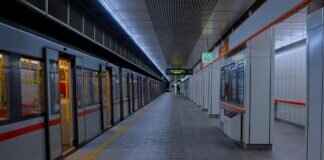When it comes to fashion staples, slip dresses have carved out a significant niche in women’s wardrobes. Their elegant silhouette and versatile nature make them suitable for a variety of occasions, from casual outings to formal events. In this guide, we will explore the world of slip dresses and highlight some of the top brands that offer style, quality, and comfort. By the end, you’ll be equipped to make informed choices for your wardrobe.
A slip dress is typically made from lightweight fabrics such as satin or silk, featuring a simple yet flattering design that complements various body types. This garment is not only easy to wear but also incredibly versatile, allowing for numerous styling options.
Slip dresses are celebrated for their unmatched comfort and sophisticated appeal. They can be worn alone for a minimalist look or layered with other pieces to create a more complex outfit. Whether you’re heading to a casual brunch or a formal dinner, a slip dress can effortlessly adapt to the occasion.
Several brands have distinguished themselves in the slip dress market, each offering unique styles and high-quality materials. Here are some noteworthy options:
- Everlane: Known for its commitment to sustainability, Everlane offers slip dresses that are both stylish and environmentally friendly.
- Reformation: This brand specializes in eco-conscious fashion, providing trendy slip dresses that appeal to modern tastes.
- Free People: With a bohemian flair, Free People’s slip dresses often feature unique prints and designs, perfect for those looking to make a statement.
- ASOS: A one-stop shop for affordable fashion, ASOS carries a vast selection of slip dresses in various styles and sizes.
Styling a slip dress can be a fun and creative process. Here are some tips on how to dress it up or down:
For a relaxed vibe, consider pairing your slip dress with a denim jacket and sneakers. This look is perfect for a laid-back brunch or a day out with friends.
To dress up your slip dress, try adding a tailored blazer and heeled boots. This combination is ideal for evening events or dinner dates, providing a chic and polished appearance.
The fabric of your slip dress can significantly affect its overall look and feel. Here are some popular materials:
- Satin: Offers a luxurious sheen and smooth texture, making it a popular choice for evening wear.
- Silk: Known for its natural breathability, silk slip dresses can be more expensive but are well worth the investment for their elegance.
- Cotton: For a more casual option, cotton slip dresses are comfortable and breathable, perfect for warm weather.
Proper care is essential to maintain the longevity of your slip dress. Here are some practical tips:
Always check the care label before washing. Hand washing in cold water is often recommended, and air drying is best to prevent shrinkage.
To avoid wrinkles, store your slip dresses hanging in a cool, dry place. Using padded hangers can help maintain their shape.
Slip dresses are continually evolving with fashion trends. Here are some styles that are gaining popularity:
- Layering with Oversized Sweaters: This trend adds warmth and dimension, making it perfect for cooler months.
- Bold Prints and Colors: While classic slip dresses are often solid, vibrant hues and unique patterns are increasingly in vogue.
In summary, slip dresses are a must-have for any fashion-forward wardrobe. With the right styling and care, they can serve as a versatile piece for any occasion. Explore the brands mentioned above to find the perfect slip dress that suits your style!

What is a Slip Dress?
A slip dress is a versatile and lightweight garment that has become a staple in many wardrobes. Its simplistic design and elegant silhouette allow it to be easily dressed up or down, making it suitable for a variety of occasions. Typically crafted from luxurious fabrics such as satin or silk, the slip dress drapes beautifully on the body, enhancing the natural shape and providing a flattering fit for different body types.
The popularity of the slip dress can be attributed to its comfort and versatility. This garment is perfect for layering or can be worn on its own, making it an ideal choice for both casual and formal settings. Whether you’re heading to a summer picnic or attending a sophisticated evening event, a slip dress can be styled to fit the occasion.
Styling a slip dress can be both fun and creative. Here are a few popular ways to wear this timeless piece:
- Casual Day Out: Pair your slip dress with a denim jacket and white sneakers for a relaxed look that’s perfect for brunch or a day of shopping.
- Chic Evening Look: For a more polished appearance, layer your slip dress with a tailored blazer and finish off with strappy heels.
- Layering for Cooler Weather: During the colder months, consider wearing a fitted turtleneck underneath your slip dress and adding ankle boots for a stylish yet warm outfit.
The choice of fabric plays a crucial role in the overall look and feel of a slip dress. The most common materials include:
- Satin: Known for its smooth texture and luxurious appearance, satin slip dresses often have a slight sheen that adds elegance.
- Silk: A natural fiber that offers breathability and a soft feel against the skin, silk is a premium option for those seeking luxury.
- Cotton: For a more casual vibe, cotton slip dresses are lightweight and breathable, making them ideal for warm weather.
- Linen: Another great option for summer, linen slip dresses are known for their relaxed aesthetic and comfort.
To ensure the longevity of your slip dress, proper care is essential. Here are some tips:
- Washing: Always check the care label. Hand washing in cold water is often recommended, especially for silk and satin.
- Drying: Air drying is the best method to prevent shrinkage and maintain the fabric’s integrity.
- Storage: Store your slip dresses hanging to avoid wrinkles, using padded hangers to maintain their shape.
Slip dresses continue to evolve with fashion trends, making them a relevant choice for modern wardrobes. Some current trends include:
- Layering with Oversized Sweaters: This trend combines comfort with style, perfect for cooler months.
- Bold Prints and Colors: While classic slip dresses often feature solid colors, vibrant hues and unique patterns are becoming increasingly popular.
In summary, a slip dress is not just a piece of clothing; it’s a fashion statement that offers endless styling possibilities. Whether you’re dressing it up for a night out or keeping it casual for daytime wear, the slip dress is a must-have item that embodies both style and comfort.

Why Choose a Slip Dress?
When it comes to versatile wardrobe staples, slip dresses stand out for their unique blend of comfort and elegance. These garments are not just a trend; they are a timeless addition to any fashion-forward closet. With their minimalist design, slip dresses can be styled effortlessly, making them suitable for a variety of occasions. Here’s why you should consider adding a slip dress to your collection.
Slip dresses are typically made from soft, flowing fabrics such as satin, silk, or even lightweight cotton. This choice of materials contributes to their unparalleled comfort. The breathable nature of these fabrics ensures that you can wear them for extended periods without feeling restricted or uncomfortable. Additionally, the smooth texture of slip dresses glides over the skin, making them ideal for warm weather or layering in cooler months.
One of the most appealing aspects of slip dresses is their versatility. You can easily transition from a casual day look to an elegant evening outfit. For a relaxed daytime appearance, pair your slip dress with a denim jacket and sneakers. This combination is perfect for brunch or a casual outing with friends. To elevate your look for a formal occasion, simply add a tailored blazer and a pair of heels. This adaptability makes slip dresses an essential piece in any wardrobe.
The minimalist design of slip dresses allows for easy styling. With clean lines and a simple silhouette, these dresses can be accessorized in countless ways. Whether you prefer statement jewelry or a more understated approach, a slip dress provides the perfect canvas for your personal style. You can also play with layers—think oversized sweaters or chic cardigans—to create a unique look that reflects your personality.
Slip dresses are not confined to a particular season. In the warmer months, they can be worn alone or paired with light layers. During colder seasons, they can be layered with turtlenecks or long-sleeve tops for added warmth. This adaptability makes them a smart investment, as they can be worn year-round with the right styling.
When choosing a slip dress, it’s essential to consider the quality of the fabric and construction. Investing in a high-quality slip dress will ensure that it lasts for many seasons to come. Look for brands that prioritize sustainable practices and ethical production, as these often yield better-quality garments. A well-made slip dress can be a staple in your wardrobe for years, making it a worthwhile investment.
- Accessorize Wisely: Use accessories to enhance your look. A statement belt can cinch the waist, while bold earrings can add a touch of glam.
- Play with Footwear: The type of shoes you wear can dramatically change the vibe of your outfit. Sneakers for casual outings, heels for a night out.
- Experiment with Layers: Don’t hesitate to layer your slip dress with different outerwear. A leather jacket can add an edgy touch, while a cardigan can create a cozy feel.
In summary, slip dresses are a fantastic choice for anyone looking to enhance their wardrobe with a piece that combines comfort, elegance, and versatility. Their minimalist design and ability to be styled for various occasions make them a must-have item. Whether you’re dressing up for a formal event or keeping it casual, a slip dress can be the perfect solution.

Top Brands for Slip Dresses
When it comes to finding the perfect slip dress, the choices can be overwhelming. With numerous brands offering various styles, fabrics, and designs, it’s essential to know which ones stand out. Below, we explore that not only prioritize style but also quality and comfort.
Selecting a reputable brand for your slip dress ensures that you receive a garment that is not only fashionable but also made with quality materials. A well-made slip dress can elevate your wardrobe, providing versatility for numerous occasions.
Everlane has gained a reputation for its commitment to sustainability and transparency. Their slip dresses are crafted from high-quality materials like Tencel and organic cotton, making them an excellent choice for those looking to make eco-conscious fashion statements. The brand’s minimalist designs are perfect for both casual and formal settings.
Known for its chic, eco-friendly clothing, Reformation offers slip dresses that are both stylish and sustainable. The brand uses recycled materials and prioritizes low-impact production methods. With unique prints and fashionable cuts, Reformation’s slip dresses appeal to a modern audience seeking both style and environmental responsibility.
If you’re looking for a slip dress with a bohemian vibe, Free People is the brand to check out. Their designs often feature intricate lace details and flowing fabrics, perfect for those who want to add a touch of romance to their wardrobe. Free People’s slip dresses can be easily layered with cardigans or worn alone for a carefree look.
Anthropologie is renowned for its artistic and eclectic designs. Their slip dresses often incorporate unique patterns, textures, and embellishments, making them stand out in any crowd. Perfect for special occasions or a night out, Anthropologie’s slip dresses are a favorite among fashion-forward individuals.
ASOS provides a vast selection of slip dresses at accessible price points. With a diverse range of styles, from classic to contemporary, ASOS caters to various tastes and body types. Their user-friendly website allows for easy browsing, making it a go-to destination for budget-conscious shoppers.
Nasty Gal is known for its bold and edgy fashion choices. Their slip dresses often feature daring cuts, vibrant colors, and trendy designs, appealing to those who want to make a statement. If you’re looking for something that stands out, Nasty Gal’s offerings are worth exploring.
For those seeking a more curated selection, Nordstrom offers high-quality slip dresses from various designers. With a commitment to excellent customer service, Nordstrom ensures a pleasant shopping experience, whether you’re shopping in-store or online. Their collection ranges from classic silhouettes to modern interpretations.
Choosing the right slip dress brand involves considering several factors:
- Fabric Quality: Look for brands that use quality materials like silk, satin, or organic cotton.
- Design: Consider your personal style and the occasions you’ll wear the dress for.
- Price Point: Determine your budget and explore brands that fit within it.
- Sustainability: If eco-friendliness is important to you, opt for brands that prioritize sustainable practices.
In conclusion, the slip dress market is filled with brands that cater to various styles, preferences, and budgets. Whether you’re drawn to the sustainable practices of Everlane and Reformation or the unique designs of Anthropologie and Free People, there’s a slip dress out there for everyone. By considering the factors mentioned above, you can find the perfect slip dress that fits your lifestyle and enhances your wardrobe.
Everlane: Sustainable and Stylish
When it comes to the world of fashion, sustainability and ethical production are no longer just trends; they have become essential aspects of how brands operate. One brand that stands out in this movement is Everlane. Known for its transparency and commitment to responsible manufacturing, Everlane has carved a niche for itself in the competitive fashion landscape.
Everlane’s slip dresses exemplify the brand’s core values. Crafted from high-quality materials, these dresses not only provide a stunning aesthetic but also ensure maximum comfort. The fabric selection is meticulously curated, often featuring eco-friendly options that minimize environmental impact. For instance, many of their dresses utilize recycled materials or organic cotton, making them a perfect choice for the environmentally conscious consumer.
Everlane’s slip dresses are designed with a minimalist aesthetic that appeals to a wide range of styles. The simple yet elegant silhouette flatters various body types, making it a versatile addition to any wardrobe. Additionally, the dresses are available in an array of colors and patterns, ensuring that there is something for everyone.
One of the standout features of Everlane is its commitment to ethical production practices. The brand partners with factories that prioritize fair wages and safe working conditions. By maintaining transparency about their supply chain, Everlane allows customers to see exactly where and how their clothing is made. This level of honesty builds trust and encourages consumers to make more informed purchasing decisions.
- Quality Materials: Everlane prioritizes the use of premium fabrics that are both durable and comfortable.
- Sustainability: The brand actively seeks to reduce its carbon footprint through eco-friendly practices.
- Timeless Design: Their slip dresses are designed to be worn season after season, transcending fleeting fashion trends.
- Transparency: Everlane shares detailed information about their pricing and production processes, allowing consumers to understand the value of their purchases.
One of the beauties of a slip dress is its versatility. Everlane’s slip dresses can be styled in numerous ways, making them suitable for different occasions. For a casual daytime look, consider pairing the dress with a lightweight cardigan and comfortable sandals. This combination is perfect for a brunch date or a stroll in the park.
For a more polished appearance, layer the slip dress with a structured blazer and ankle boots. This ensemble is ideal for office settings or evening gatherings, providing a chic and sophisticated vibe. Accessories can also play a significant role in transforming the look; statement jewelry or a stylish handbag can elevate your outfit even further.
Everlane’s slip dresses are available directly through their official website, where customers can explore the latest collections and find exclusive styles. The brand often runs promotions, allowing shoppers to snag high-quality pieces at competitive prices. Additionally, Everlane offers a 30-day return policy, ensuring customer satisfaction.
Customer reviews highlight the comfort and quality of Everlane’s slip dresses. Many users appreciate the breathable fabrics and flattering cuts, making them a favorite for warm weather. Additionally, the brand’s commitment to sustainability resonates with consumers who prioritize ethical fashion choices.
In summary, Everlane stands out as a leader in the sustainable fashion movement, particularly with its slip dresses. By focusing on quality, ethics, and style, Everlane offers a compelling option for those looking to make responsible fashion choices without compromising on aesthetics.
Reformation: Eco-Friendly Fashion
Reformation has carved a niche in the fashion industry by focusing on eco-friendly clothing that doesn’t compromise on style. With a commitment to sustainability, this brand has become a favorite among environmentally conscious consumers who also want to look chic. Their collection of slip dresses is a testament to this philosophy, showcasing designs that are both fashionable and sustainable.
Reformation’s slip dresses are crafted from responsibly sourced materials, ensuring that each piece is not only stylish but also environmentally friendly. The brand prioritizes the use of recycled fabrics and eco-conscious manufacturing processes, which significantly reduce their carbon footprint. This commitment to sustainability resonates with a modern audience that values both fashion and environmental responsibility.
The slip dresses offered by Reformation are designed with the latest fashion trends in mind. Featuring trendy prints and contemporary cuts, these dresses appeal to a diverse range of personal styles. Whether you prefer bold floral patterns or classic solid colors, Reformation has something for everyone. Their designs are perfect for various occasions, from casual outings to formal events.
- Sustainable Practices: Reformation is transparent about its production processes, allowing consumers to make informed choices.
- Quality Materials: The brand uses high-quality fabrics that are soft, durable, and comfortable to wear.
- Fashion-Forward Styles: Each piece is designed to be on-trend, ensuring that you look stylish while making a sustainable choice.
Styling a Reformation slip dress can be an enjoyable and creative endeavor. Here are some tips to help you make the most of this versatile piece:
- Layering: For a chic look, consider layering your slip dress with a fitted turtleneck or a lightweight long-sleeve shirt underneath.
- Accessorizing: Add statement jewelry or a stylish belt to enhance your outfit and create a more defined silhouette.
- Footwear Choices: Pair your slip dress with ankle boots for an edgier look or opt for strappy sandals for a more feminine vibe.
Shopping for Reformation slip dresses is convenient, as they are available online through their official website. The site offers a user-friendly interface, making it easy to browse through the latest collections. Additionally, Reformation frequently updates its inventory, so customers can find new styles and limited-edition pieces.
Customer reviews consistently praise Reformation for its commitment to quality and sustainability. Many buyers appreciate the comfortable fit and stylish designs, often mentioning how easy it is to dress up or down their slip dresses. This positive feedback highlights the brand’s ability to meet the needs of a modern, eco-conscious consumer.
In a world where fashion often comes at the expense of the environment, Reformation stands out as a beacon of hope. Their eco-friendly slip dresses not only allow consumers to express their personal style but also contribute positively to the planet. By choosing Reformation, you are making a statement that fashion can be both chic and sustainable.

How to Style a Slip Dress?
Styling a slip dress can be fun and creative. This versatile piece can be transformed to suit any occasion, whether you want a casual look for a day out or a more sophisticated ensemble for an evening event. Here, we will explore various ways to style a slip dress, ensuring you can make the most of this wardrobe staple.
For a relaxed vibe, consider pairing your slip dress with a few key pieces:
- Denim Jacket: A classic denim jacket adds a laid-back touch. Opt for a slightly oversized fit to create a trendy silhouette.
- Sneakers: Comfortable sneakers are perfect for maintaining an effortless style. White sneakers can add a fresh look, while colorful options can inject personality.
- Crossbody Bag: A small crossbody bag is both practical and stylish, allowing you to keep your essentials close at hand.
This combination is ideal for brunch with friends or a casual shopping day, offering both comfort and chicness.
To elevate your slip dress for a more formal event, consider the following:
- Tailored Blazer: A fitted blazer can transform your slip dress into a polished outfit. Choose a blazer in a contrasting color for a striking look.
- Heeled Boots: Heeled ankle boots add sophistication and lengthen your legs, making them perfect for evening gatherings.
- Statement Jewelry: Bold earrings or a chunky necklace can add a touch of glamour, drawing attention to your neckline.
This ensemble is perfect for dinner dates or cocktail parties, ensuring you look chic and put-together.
One of the best features of a slip dress is its layering potential. Here are some techniques to adapt it for different seasons:
- Summer: Wear your slip dress alone with sandals and a wide-brimmed hat for a breezy summer look.
- Fall: Layer your slip dress over a fitted turtleneck and pair it with ankle boots for a cozy, stylish outfit.
- Winter: Add tights and a long coat over your slip dress, along with knee-high boots, to keep warm while looking fashionable.
Accessories can make or break your outfit. Here are some tips for accessorizing your slip dress:
- Belt: A cinched waist can add definition. Use a statement belt to accentuate your silhouette and create a more structured look.
- Scarves: A lightweight scarf can add texture and color. Drape it around your neck or tie it to your bag for a playful touch.
- Hats: A stylish hat can elevate your outfit. Consider a fedora for a boho vibe or a beret for a Parisian flair.
The right shoes can dramatically change the vibe of your slip dress. Here are some options:
- Sandals: Perfect for summer, opt for strappy sandals for a feminine touch.
- Flats: Ballet flats or loafers can provide comfort while keeping the look chic.
- Heels: Stilettos or block heels can add elegance, making your slip dress suitable for formal events.
In summary, styling a slip dress is all about creativity and personal expression. By mixing and matching different pieces, you can create a variety of looks that fit any occasion. Embrace the versatility of this wardrobe staple and let your style shine!
Casual Looks with Slip Dresses
When it comes to achieving a laid-back vibe, few outfits can compete with the effortless charm of a slip dress paired with a denim jacket and sneakers. This combination is not only stylish but also incredibly comfortable, making it an ideal choice for various casual occasions. Whether you’re heading out for brunch with friends or enjoying a leisurely day at the park, this outfit strikes the perfect balance between functionality and fashion.
The slip dress, known for its versatile and lightweight design, is a staple in many wardrobes. Its minimalist silhouette allows for easy layering, making it a perfect canvas for creative styling. By adding a denim jacket, you introduce a touch of casual coolness that complements the elegance of the slip dress. The rugged texture of denim contrasts beautifully with the soft fabric of the dress, creating a dynamic look that is both chic and relaxed.
To complete this ensemble, a pair of comfortable sneakers is essential. Opt for classic white sneakers for a clean and timeless look, or choose colorful options to add a fun pop to your outfit. Sneakers not only enhance comfort but also lend a sporty edge to the overall appearance, making it suitable for a variety of activities.
- Brunch Outfits: A slip dress, denim jacket, and sneakers are perfect for a casual brunch. Add a crossbody bag and some statement earrings to elevate the look.
- Day Out with Friends: This combination is great for a day of exploring the city. Pair it with a stylish hat and sunglasses for a trendy touch.
- Picnic in the Park: For a relaxed picnic, the slip dress and denim jacket combo allows for easy movement and comfort while enjoying the outdoors.
Accessorizing is key to personalizing your look. Consider layering delicate necklaces or stacking bracelets to add a touch of your personality. Additionally, a lightweight scarf can be a great addition, providing warmth on cooler days while enhancing your style.
In terms of footwear, while sneakers are a go-to choice, you can also experiment with ankle boots or flat sandals for a different vibe. Each option brings its own flair, allowing you to adapt the outfit to your personal style and comfort level.
Ultimately, the beauty of styling a slip dress lies in its adaptability. With the right layers and accessories, you can transform this simple piece into a statement outfit that reflects your unique style. Whether you choose to keep it classic with denim and sneakers or explore other options, the slip dress remains a versatile addition to your wardrobe, perfect for any casual occasion.
Elevated Styles for Formal Occasions
When it comes to styling a slip dress for formal occasions, the possibilities are both exciting and versatile. This garment, known for its elegant silhouette, can be transformed into a sophisticated ensemble with the right accessories and layering techniques. Below are some key tips and ideas to elevate your slip dress for those special events.
A slip dress is not only comfortable but also provides a timeless elegance that is hard to match. Its minimalist design allows for a wide range of styling options, making it suitable for various formal occasions, from weddings to fancy dinners. The right accessories can easily transition this simple piece into a statement outfit.
One of the most effective ways to dress up a slip dress is by adding a tailored blazer. A well-fitted blazer can introduce structure to the flowy nature of a slip dress, creating a balanced look. Opt for blazers in classic colors like black, navy, or cream to maintain a sophisticated vibe. You can also experiment with textures, such as velvet or tweed, to add depth to your outfit.
Footwear plays a crucial role in elevating your slip dress. Heeled boots are an excellent choice, as they not only add height but also contribute to a chic and polished appearance. Consider styles like ankle boots or knee-high boots, depending on the season and the length of your dress. For warmer months, strappy heels or classic pumps can also work beautifully.
Accessories can make or break your outfit. When dressing up a slip dress, consider adding statement jewelry such as bold earrings or layered necklaces. A chic clutch or a structured handbag can also enhance your look while providing practicality. Don’t forget to pay attention to your hairstyle; an elegant updo or sleek waves can complement the overall aesthetic.
While a classic slip dress often comes in solid colors, don’t shy away from experimenting with bold prints and vibrant hues. Floral patterns, geometric designs, or rich jewel tones can add personality to your outfit, making it stand out at any formal gathering. Pairing a printed slip dress with neutral accessories can help balance the look while keeping it sophisticated.
For cooler evenings, consider layering your slip dress with a stylish coat or a long cardigan. A trench coat can add a touch of sophistication, while a leather jacket can introduce an edgy element to your outfit. Choose outerwear that complements the color and style of your slip dress to maintain a cohesive look.
As you prepare for your event, ensure that your slip dress is well-pressed and free of wrinkles. A quick steam can work wonders. Additionally, consider the overall balance of your outfit; if your dress is simple, allow your accessories to shine, and vice versa. Ultimately, the goal is to feel confident and comfortable while looking effortlessly chic.
With these styling tips, you can easily transform a simple slip dress into a stunning outfit for any formal occasion. Remember, the key is to experiment and find combinations that reflect your personal style while adhering to the event’s dress code. Enjoy the process of dressing up and let your slip dress shine!

Where to Buy Slip Dresses Online?
When it comes to adding a slip dress to your wardrobe, shopping online provides the ultimate convenience and an extensive range of options. With just a few clicks, you can explore numerous styles, colors, and fabrics that suit your personal taste and budget. Below is a detailed guide to some of the best online retailers where you can find stylish slip dresses.
ASOS is a popular destination for fashion enthusiasts seeking affordable slip dresses. Their extensive collection features a variety of styles, from classic to contemporary designs, ensuring that there is something for everyone. The website is user-friendly, allowing you to filter your search by size, color, and price, making it easy to find the perfect dress for any occasion.
Nordstrom is renowned for its curated selection of high-quality slip dresses from various designers. Whether you’re looking for a luxurious silk option or a more casual cotton blend, Nordstrom offers a diverse range of choices. Their commitment to customer service ensures that you will have a pleasant shopping experience, whether you shop online or in-store.
For those who want to stay ahead of the fashion curve, Revolve is the go-to retailer. Known for its trendy and chic styles, Revolve offers a selection of slip dresses that are perfect for making a statement. With brands that cater to the latest styles, you can find dresses that feature unique cuts, bold prints, and eye-catching colors.
If you’re a fan of bohemian fashion, Free People is a must-visit. Their slip dresses often incorporate flowy silhouettes and intricate detailing, perfect for creating a laid-back yet stylish look. You can easily pair these dresses with ankle boots or sandals for a complete outfit.
For those who appreciate artistic designs, Anthropologie offers a selection of slip dresses that stand out due to their unique prints and textures. Their pieces often feature intricate embroidery or lace detailing, making them suitable for both casual and formal occasions.
Urban Outfitters caters to a younger audience with its trendy and affordable slip dresses. You can find a variety of styles that embrace the latest fashion trends, from minimalist designs to bold patterns. Their dresses are perfect for casual outings or layering for a more sophisticated look.
- Consider Your Body Type: Different styles flatter different body shapes. A-line silhouettes work well for most figures, while fitted styles may accentuate curves.
- Check the Fabric: Opt for materials that suit the season and occasion. Silk and satin are elegant, while cotton and linen are great for casual wear.
- Read Reviews: Customer reviews can provide insight into the fit and quality of the dress, helping you make an informed decision.
- Look for Size Guides: Make sure to consult the retailer’s size guide to ensure the best fit.
Shopping for slip dresses online not only offers a variety of choices but also provides the convenience of comparing prices and styles from the comfort of your home. With the right information and resources, you can find the perfect slip dress that complements your style and fits your budget.
ASOS: Affordable and Trendy
When it comes to finding fashionable yet affordable clothing, ASOS stands out as a premier destination for shoppers around the globe. Renowned for its extensive range of styles, ASOS offers a remarkable selection of slip dresses that cater to diverse tastes and body types. With their commitment to affordability and trendiness, it’s no wonder that ASOS has become a favorite among fashion enthusiasts.
- Vast Selection: ASOS boasts an impressive variety of slip dresses, from classic solid colors to bold prints and patterns. Whether you’re looking for a casual day dress or something more elegant for a night out, ASOS has you covered.
- User-Friendly Experience: The website is designed with the shopper in mind, making it easy to navigate through different categories and styles. You can filter your search by size, color, and price, ensuring you find the perfect dress without any hassle.
- Inclusive Sizing: ASOS understands the importance of inclusivity in fashion. They offer a wide range of sizes, ensuring that everyone can find a slip dress that fits beautifully.
- Affordable Pricing: With frequent sales and discounts, ASOS makes it easy to stay on-trend without breaking the bank. Their competitive pricing allows you to experiment with different styles without the worry of overspending.
ASOS features an array of slip dress styles that reflect current fashion trends. From mini to maxi lengths, you can find options that suit any occasion. Some popular styles include:
- Classic Satin: A timeless choice that exudes elegance, perfect for formal events.
- Casual Cotton: Ideal for everyday wear, these dresses are breathable and comfortable.
- Patterned Variants: From floral to geometric prints, these dresses add a playful touch to your wardrobe.
Styling a slip dress from ASOS is an exciting opportunity to express your personal style. Here are a few tips:
- Layering: Add a denim jacket or oversized cardigan for a casual look.
- Accessorizing: Pair with statement jewelry or a chic handbag to elevate your outfit.
- Footwear: Sneakers for a laid-back vibe or heels for a more polished appearance can transform your look.
Many customers rave about their ASOS shopping experiences, highlighting the quality of the dresses and the ease of returns. The site features numerous reviews that provide insights into fit, comfort, and style, helping potential buyers make informed decisions.
ASOS is undoubtedly a top choice for those in search of affordable and trendy slip dresses. With their vast selection, user-friendly website, and commitment to inclusivity, ASOS makes it easy to find the perfect dress for any occasion. Whether you’re dressing up for a special event or looking for a comfortable outfit for a casual day out, ASOS has something to offer for everyone.
Nordstrom: Quality and Variety
Nordstrom has established itself as a premier destination for shoppers seeking not only quality but also an extensive variety of slip dresses. With a commitment to customer satisfaction, Nordstrom provides an exceptional shopping experience, whether you prefer browsing in-store or online.
Shopping at Nordstrom means accessing a carefully curated selection of slip dresses from a range of renowned designers. This variety allows you to find the perfect dress that suits your personal style and body type. Their collection includes everything from classic styles to modern interpretations, ensuring that there is something for everyone.
One of the standout features of Nordstrom is its unparalleled customer service. Their knowledgeable staff is always ready to assist you, whether you need help finding the right size or styling advice. This dedication to service extends to their online platform, where you can easily navigate through their extensive collection with detailed product descriptions and customer reviews.
Nordstrom frequently collaborates with both established and emerging designers, bringing exclusive slip dress designs to its customers. These collaborations offer unique styles that you won’t find elsewhere, making your purchase not just a wardrobe addition, but a statement piece.
When it comes to slip dresses, quality matters. Nordstrom’s selection features dresses made from high-quality materials such as silk, satin, and crepe, which not only look luxurious but also feel great against the skin. The attention to detail in craftsmanship ensures that each dress is not only beautiful but also durable, providing excellent value for your investment.
Shopping for slip dresses at Nordstrom is a breeze. You can filter your search by size, color, and price range, making it easy to find exactly what you’re looking for. Additionally, their user-friendly website allows you to save your favorite items and receive notifications about sales and new arrivals.
Another reason to shop at Nordstrom is their generous return policy. If you purchase a slip dress and it doesn’t meet your expectations, you can return it hassle-free. This policy gives you the confidence to try new styles without the fear of being stuck with something that doesn’t work for you.
Before making a purchase, you can read customer reviews and ratings for each slip dress. This feedback is invaluable as it provides insights into the fit, comfort, and overall satisfaction of previous buyers. By considering these reviews, you can make informed decisions that align with your style and needs.
In recent years, Nordstrom has made strides towards sustainability in fashion. They offer a selection of slip dresses made from eco-friendly materials, ensuring that your fashion choices are not only stylish but also environmentally conscious.
With its combination of quality, variety, and exceptional customer service, Nordstrom stands out as a top choice for shopping for slip dresses. Whether you’re looking for a timeless piece or a trendy addition to your wardrobe, Nordstrom has you covered.

What Fabrics Are Best for Slip Dresses?
When it comes to selecting the perfect slip dress, the fabric plays a crucial role in determining its overall appearance and comfort. The choice of material can enhance the elegance of the dress while also ensuring that it fits your personal style and comfort needs. In this section, we will explore the best fabrics for slip dresses, highlighting their unique characteristics and benefits.
The fabric of a slip dress significantly impacts its look and feel. Understanding the best materials can help you choose a dress that suits your style and comfort preferences. A well-chosen fabric can elevate a simple design into a stunning outfit.
Satin is one of the most popular fabrics for slip dresses, known for its luxurious sheen and smooth texture. It drapes beautifully, creating an elegant silhouette that flatters various body types. Additionally, satin is relatively easy to care for, making it a practical choice for everyday wear. However, it’s essential to note that satin can sometimes be less breathable than other fabrics, which may not be ideal for hot weather.
Silk is often regarded as the epitome of luxury when it comes to fabrics. Known for its natural sheen and softness, silk slip dresses provide an unparalleled feel against the skin. They are also breathable, making them suitable for both warm and cool climates. However, silk requires more care than other materials, as it is prone to staining and may need dry cleaning to maintain its quality.
If you’re looking for a more casual and breathable option, consider slip dresses made from cotton. Cotton is lightweight and comfortable, making it ideal for warm weather. It can be styled for various occasions, from casual outings to relaxed summer events. Cotton slip dresses often come in a variety of prints and colors, allowing for a more playful aesthetic.
Linen is another excellent fabric choice for slip dresses, particularly during the hot summer months. Its natural fibers allow for excellent airflow, keeping you cool and comfortable. Linen has a slightly textured appearance, which adds a unique charm to the dress. However, it is more prone to wrinkling, so it may require a little extra care when it comes to storage and maintenance.
Chiffon is a lightweight, sheer fabric that can add a romantic touch to slip dresses. It is often layered over other materials to create a soft, flowing effect. While chiffon slip dresses can be incredibly beautiful, they may require careful handling to avoid snags and tears.
Many slip dresses are made from fabric blends that combine the best qualities of different materials. For example, a polyester-cotton blend can offer the durability of polyester with the softness of cotton, making it a practical choice for everyday wear. Blends can also enhance the dress’s stretch and comfort, ensuring a flattering fit.
- Consider the Occasion: Think about where you plan to wear the slip dress. For formal events, silk or satin may be more appropriate, while cotton or linen is great for casual outings.
- Check the Climate: Choose breathable fabrics for hot weather and heavier materials for cooler temperatures.
- Think About Care: Some fabrics require more maintenance than others. Consider how much time you are willing to invest in caring for your dress.
By understanding the different fabrics available for slip dresses, you can make an informed choice that aligns with your style, comfort, and lifestyle needs. Whether you opt for the luxurious feel of silk or the casual comfort of cotton, the right fabric will enhance your overall look and experience.
Satin vs. Silk: Which is Better?
When it comes to choosing the perfect fabric for your slip dress, satin and silk are two of the most popular options available. Both materials offer a luxurious feel, but they each have unique characteristics that can influence your decision. Understanding the differences between satin and silk can help you select the best fabric for your personal style and comfort needs.
Satin is a weave that can be made from various fibers, including polyester, nylon, or silk. It is known for its smooth surface and shiny finish, which gives it a glamorous appearance. One of the main advantages of satin is its affordability; it is often less expensive than silk, making it a popular choice for those on a budget. Additionally, satin is relatively durable and easy to care for, which adds to its appeal.
Silk, on the other hand, is a natural fiber produced by silkworms. It is renowned for its softness, breathability, and natural sheen. Silk slip dresses tend to drape beautifully on the body, creating an elegant silhouette. While silk is generally more expensive than satin, its luxurious feel and high-quality appearance often justify the higher price point for many consumers.
When it comes to comfort, silk has the upper hand due to its breathable nature. It allows for better air circulation, making it an excellent choice for warm weather or special occasions where you want to feel cool and comfortable. Satin, while also comfortable, may not offer the same level of breathability, especially if it is made from synthetic fibers.
In terms of durability, satin typically holds up well over time, especially if it is made from synthetic materials. However, silk requires more careful handling; it is often recommended to hand wash silk garments and avoid exposure to direct sunlight to prevent fading. Proper care is essential to maintain the integrity of both fabrics, but satin may be more forgiving for everyday wear.
As mentioned earlier, satin is often the more affordable option, making it accessible for a wider range of consumers. Silk, being a luxury fabric, comes with a higher price tag. However, investing in a silk slip dress can be worthwhile if you’re looking for a timeless piece that can elevate your wardrobe.
Both satin and silk slip dresses can be styled in various ways, making them versatile additions to your closet. Satin dresses are perfect for casual outings or parties, while silk dresses can be dressed up for formal events. Pairing either fabric with the right accessories can create stunning looks that suit any occasion.
Ultimately, the choice between satin and silk comes down to personal preference and intended use. If you’re looking for an affordable, stylish option for everyday wear, satin might be your best bet. However, if you want a luxurious, breathable fabric that feels exquisite against your skin, investing in silk is a decision you won’t regret.
In conclusion, both satin and silk have their unique advantages and can make for beautiful slip dresses. Consider your budget, comfort needs, and styling preferences when making your choice, and you’ll find the perfect fabric to enhance your wardrobe.
Cotton and Linen Options
When it comes to selecting the perfect slip dress for warmer weather, cotton and linen fabrics stand out as exceptional choices. These materials not only offer a breathable option but also provide a relaxed aesthetic that aligns perfectly with casual outings and laid-back gatherings. In this section, we will delve deeper into the benefits of cotton and linen slip dresses, explore styling options, and discuss how to care for these versatile pieces.
Cotton is renowned for its softness and durability, making it a popular choice for everyday wear. Its natural fibers allow for excellent air circulation, keeping you cool even on the hottest days. On the other hand, linen is celebrated for its lightweight and moisture-wicking properties, which contribute to a comfortable fit. Both fabrics are also eco-friendly, as they are biodegradable and require less water during production compared to synthetic materials.
One of the great advantages of cotton and linen slip dresses is their versatility. Here are some styling tips for different occasions:
- Casual Outings: Pair your slip dress with a lightweight denim jacket and comfortable sneakers for a relaxed look. This combination is perfect for brunch with friends or a day at the park.
- Beach Days: Layer your slip dress over a stylish swimsuit for a chic beach cover-up. Opt for a wide-brimmed hat and sunglasses to complete the look.
- Evening Events: Elevate your slip dress by adding a statement belt and strappy sandals. A light shawl can also be a great addition for cooler evenings.
To maintain the quality of your cotton and linen slip dresses, follow these care tips:
- Washing: Always check the care label before washing. Generally, hand washing in cold water is recommended to preserve the fabric’s integrity.
- Drying: Air drying is ideal for cotton and linen. Avoid tumble drying, as it can lead to shrinkage and damage.
- Ironing: If needed, iron on a low setting while the fabric is slightly damp to remove wrinkles without scorching.
Many brands offer high-quality slip dresses made from cotton and linen. Look for retailers that prioritize sustainability and ethical production practices. Popular options include:
- Everlane: Known for its commitment to transparency and sustainable practices, Everlane offers a range of stylish cotton slip dresses.
- Reformation: This brand focuses on eco-friendly fashion and features beautiful linen slip dresses in trendy styles.
In summary, cotton and linen slip dresses are an excellent choice for those seeking comfort and style during warm weather. Their breathable nature, combined with versatile styling options, makes them a must-have in any wardrobe. By following proper care guidelines, you can ensure that your slip dresses remain in great condition for years to come.

How to Care for Your Slip Dress?
Proper care is essential to maintain the quality and longevity of your slip dress. These delicate garments, often made from luxurious fabrics like silk and satin, require specific attention to ensure they remain in top condition. Here are some effective tips on how to wash and store your slip dresses to keep them looking fabulous.
Before you even think about washing your slip dress, always check the care label. This label provides essential information regarding the best washing methods for your specific garment. Here are some general guidelines:
- Hand Washing: For most slip dresses, hand washing in cold water is the safest option. Fill a basin with cool water and add a gentle detergent designed for delicate fabrics.
- Machine Washing: If the label permits machine washing, place your dress in a mesh laundry bag to protect it. Use a gentle cycle with cold water.
- Avoid Bleach: Never use bleach on your slip dress, as it can damage the fabric and alter its color.
After washing, how you dry your slip dress is equally important:
- Air Drying: Always opt for air drying. Lay your dress flat on a clean, dry towel or hang it up to dry. Avoid using a dryer, as the heat can cause shrinkage and damage.
- Avoid Direct Sunlight: When air drying, keep your dress out of direct sunlight to prevent fading.
Proper storage is crucial for maintaining the shape and quality of your slip dress. Here are some effective storage solutions:
- Hanging: Store your slip dresses by hanging them on padded hangers. This method helps maintain their shape and prevents creasing.
- Cool, Dry Place: Ensure your storage area is cool and dry to avoid moisture buildup, which can lead to mold and mildew.
- Protective Garment Bags: Consider using breathable garment bags for added protection against dust and pests.
To further enhance the longevity of your slip dress, consider these additional care tips:
- Ironing: If your dress becomes wrinkled, use a low-heat setting on your iron or a steamer to gently remove wrinkles. Always iron inside out to protect the fabric.
- Spot Cleaning: For minor stains, try spot cleaning with a damp cloth and mild detergent before resorting to a full wash.
- Rotate Your Wardrobe: If you have multiple slip dresses, rotate their use to minimize wear and tear on any single piece.
By following these guidelines, you can ensure that your slip dresses remain in excellent condition, allowing you to enjoy their elegance and versatility for years to come.
Washing and Drying Tips
When it comes to caring for your slip dress, proper washing and drying techniques are essential to maintain its beauty and longevity. Slip dresses are often made from delicate fabrics like satin or silk, which require special attention to keep them looking their best. Here are some important tips to follow:
Understanding the fabric of your slip dress is crucial for effective care. Fabrics like silk and satin can be sensitive to heat and harsh detergents, which can lead to fading, shrinking, or damage. Thus, proper care not only preserves the dress’s appearance but also extends its lifespan.
Before washing your slip dress, always check the care label for specific instructions. This label provides essential information about the fabric type and recommended washing methods. Ignoring these guidelines can lead to irreversible damage.
For most slip dresses, hand washing is the preferred method. Fill a basin with cold water and add a gentle detergent. Submerge the dress and gently agitate the water. Avoid wringing or twisting the fabric as this can cause stretching or tearing. Rinse thoroughly with cold water to remove all detergent.
- Tip: If you must use a washing machine, opt for a delicate cycle and place the dress in a mesh laundry bag to protect it.
After washing, it is crucial to dry your slip dress properly. Air drying is highly recommended to prevent shrinkage and maintain the fabric’s integrity. Lay the dress flat on a clean, dry towel or hang it on a padded hanger. Avoid direct sunlight, as it can fade the colors and weaken the fibers.
- Avoid: Do not use a dryer, as the heat can cause the fabric to shrink and lose its shape.
How you store your slip dress can also affect its condition. To prevent wrinkles and damage, hang your dress in a cool, dry place. Use padded hangers to help maintain its shape and prevent creasing. If you need to fold it, place tissue paper between the folds to minimize creases.
- Harsh Chemicals: Avoid using bleach or harsh detergents, as they can damage the fabric.
- Hot Water: Always wash in cold water to prevent shrinking.
- Heat Sources: Keep your slip dress away from heat sources when drying and storing.
In summary, taking proper care of your slip dress involves understanding the fabric, following washing instructions, and using appropriate drying and storage methods. By adhering to these guidelines, you can ensure that your slip dress remains a staple in your wardrobe for years to come.
Storage Solutions for Slip Dresses
When it comes to caring for your slip dresses, proper storage is essential to maintain their beauty and longevity. These delicate garments require special attention to avoid wrinkles and damage, ensuring they remain a staple in your wardrobe for years to come.
Slip dresses are often made from luxurious fabrics like satin and silk, which can be prone to creasing and damage if not stored correctly. By taking the time to store them properly, you can preserve their shape and appearance, allowing you to enjoy them on various occasions without hassle.
- Hang Your Slip Dresses: To prevent wrinkles, it is advisable to hang your slip dresses rather than folding them. This method allows the fabric to drape naturally, reducing the risk of creasing.
- Use Padded Hangers: Opt for padded hangers to maintain the shape of your slip dresses. These hangers provide extra support and prevent the fabric from slipping off or becoming misshapen.
- Choose a Cool, Dry Place: Store your dresses in a cool, dry environment. Excessive heat or humidity can damage delicate fabrics, leading to discoloration and degradation over time.
- Avoid Direct Sunlight: Keep your slip dresses away from direct sunlight. Prolonged exposure can cause fading and weaken the fibers, compromising the garment’s integrity.
Organizing your slip dresses can make your wardrobe more functional and visually appealing. Here are a few tips to consider:
- Color Coordination: Arrange your dresses by color to create a visually pleasing display. This method also makes it easier to find the dress you want to wear.
- Seasonal Rotation: If you have a large collection, consider rotating your dresses seasonally. Store off-season dresses in breathable garment bags to protect them from dust and damage.
- Labeling: For those who invest in multiple slip dresses, labeling your storage can be incredibly helpful. This practice allows you to quickly locate specific styles without rummaging through your collection.
To ensure the longevity of your slip dresses, it’s crucial to avoid certain storage practices:
- Do Not Use Wire Hangers: Wire hangers can cause unsightly creases and distort the shape of your slip dress. Always opt for padded or wooden hangers instead.
- Avoid Overcrowding: Storing too many garments on a single hanger can lead to wrinkles and fabric strain. Ensure each dress has enough space to hang freely.
- Skip Plastic Covers: While it may seem practical, plastic covers can trap moisture and lead to mildew. Instead, choose breathable fabric garment bags for long-term storage.
In addition to proper storage, consider these maintenance tips to keep your slip dresses looking their best:
- Regular Cleaning: Follow the care label instructions for washing. Hand washing in cold water is often the safest option for delicate fabrics.
- Air Drying: Avoid using a dryer. Instead, hang your dresses to air dry, which helps maintain their shape and prevents shrinkage.
- Steam for Wrinkles: If your dress does get wrinkled, use a steamer instead of an iron. This method is gentler on delicate fabrics and helps preserve their texture.
By following these storage solutions and maintenance tips, you can ensure that your slip dresses remain in pristine condition, ready to be worn for any occasion. Taking the time to care for these beautiful garments will pay off in the long run, allowing you to enjoy their elegance and versatility.

What Are the Latest Trends in Slip Dresses?
Slip dresses have become a staple in modern fashion, continually evolving to reflect current trends. As styles shift, it’s essential to stay informed about the latest designs and how to incorporate them into your wardrobe. This article delves into the most recent trends in slip dresses, offering insights into how you can wear them with confidence and flair.
In recent seasons, slip dresses have transcended their basic origins, becoming a versatile piece that can be styled in numerous ways. Here are some of the most exciting trends to watch:
One of the hottest trends is the combination of slip dresses with oversized sweaters. This pairing not only adds warmth for cooler months but also creates a chic, layered look. The contrast between the delicate fabric of the slip dress and the bulkiness of the sweater adds visual interest to any outfit. For a stylish approach, opt for a neutral-toned sweater over a bold slip dress, or vice versa, to create a balanced aesthetic.
While classic slip dresses often feature solid colors, this season has seen a surge in bold prints and vibrant hues. Floral patterns, geometric designs, and bright colors are making a statement, allowing wearers to express their unique style. When choosing a printed slip dress, consider pairing it with simple accessories to let the dress be the focal point of your outfit.
Another trend gaining traction is the mixing of textures. Combining a silky slip dress with materials like leather or denim can create an edgy, modern look. For example, pairing a satin slip dress with a leather jacket and ankle boots can transform a simple outfit into something extraordinary. This trend emphasizes the versatility of slip dresses, making them suitable for both casual and formal occasions.
Accessorizing is key to elevating your slip dress. This season, statement jewelry such as chunky necklaces or oversized earrings can add a touch of glamour. Additionally, a bold belt can cinch the waist of a loose-fitting slip dress, creating a flattering silhouette. Don’t shy away from experimenting with accessories to personalize your look.
The choice of footwear can significantly influence the overall vibe of your slip dress outfit. This season, chunky boots and strappy heels are both popular options. Chunky boots can give a more casual and edgy feel, perfect for daytime outings, while strappy heels can elevate the dress for evening events. Consider the occasion and your style preference when selecting the right footwear.
Slip dresses are not just for summer; they can be adapted for any season. In colder months, layering with turtlenecks or long-sleeve tops can provide warmth while maintaining style. During warmer months, opt for lighter fabrics and minimal accessories for a fresh, breezy look. This adaptability makes slip dresses a year-round wardrobe essential.
Staying updated on the latest trends in slip dresses allows you to choose pieces that feel contemporary and stylish. With options for layering, bold prints, and unique accessories, the slip dress remains a versatile and fashionable choice for any occasion. Embrace the trends that resonate with your personal style, and enjoy the endless possibilities that slip dresses offer.
Layering with Oversized Sweaters
Layering is an essential technique in fashion, especially as the seasons change. One of the most exciting trends right now is the combination of slip dresses with oversized sweaters. This pairing not only offers a cozy aesthetic but also elevates your style quotient, making it perfect for the cooler months.
Layering slip dresses with oversized sweaters creates a dynamic look that balances comfort and chicness. The softness of the sweater contrasts beautifully with the sleekness of the slip dress, allowing for a visually appealing ensemble. Additionally, this style provides warmth without sacrificing style, making it an ideal choice for autumn and winter.
- Fabric: Opt for soft materials like wool or cashmere to ensure maximum comfort.
- Fit: Look for sweaters that have a relaxed fit, as they should drape over the slip dress without overwhelming it.
- Color: Neutral tones like beige, gray, or cream can create a classic look, while bold colors can add a pop to your outfit.
To achieve a cohesive look, consider the following styling tips:
- Accessorize: Add a statement necklace or a pair of earrings to draw attention upward.
- Footwear: Ankle boots or chunky sneakers can ground the outfit, adding a touch of edge.
- Outerwear: A tailored coat can be layered over the sweater for added warmth and sophistication.
This trendy layering technique is versatile enough for various occasions:
- Casual Outings: Perfect for brunch with friends or a day at the park.
- Office Wear: Pair with a blazer for a professional yet stylish look.
- Date Night: Add heels and a clutch for an elevated evening outfit.
When searching for the perfect oversized sweater to complement your slip dress, consider these top brands:
- Everlane: Known for their sustainable practices, they offer a range of stylish oversized sweaters.
- Free People: Their bohemian style sweaters are perfect for layering and adding a unique touch to your outfit.
- Uniqlo: Offers affordable yet fashionable options that are great for everyday wear.
Layering slip dresses with oversized sweaters is a fashion-forward choice that combines comfort with style. By choosing the right pieces and accessorizing thoughtfully, you can create a look that is both chic and cozy, perfect for any occasion. Embrace this trend and enjoy the versatility it brings to your wardrobe!
Bold Prints and Colors
When it comes to slip dresses, the traditional aesthetic often revolves around solid colors and minimalist designs. However, the fashion landscape is shifting, and we are witnessing a growing trend towards bold prints and vibrant hues. This evolution not only adds a refreshing twist to the classic slip dress but also allows wearers to express their unique styles with confidence.
Opting for a slip dress in a striking print or color can transform your entire look. Bold patterns such as florals, geometric shapes, and abstract designs can elevate a simple silhouette into a fashion statement. These eye-catching elements can draw attention and showcase your personality, making them perfect for both casual outings and special occasions.
- Pair with Neutral Accessories: When wearing a printed slip dress, balance the look with neutral accessories. A simple clutch and understated jewelry can keep the focus on the dress itself.
- Layer with Solid Colors: If you’re hesitant about bold prints, consider layering your slip dress with a solid-colored jacket or cardigan. This approach allows you to experiment with patterns while maintaining a cohesive look.
- Mix and Match: Don’t be afraid to mix prints! Pairing a floral slip dress with a striped jacket can create a fun and dynamic outfit, as long as the colors complement each other.
Vibrant colors like electric blue, fiery red, and sunny yellow are making waves in the slip dress trend. These hues can brighten your wardrobe and add a pop of color to your ensemble. Wearing a slip dress in a bold color can also be a mood booster, as bright shades are often associated with positivity and energy.
Understanding how different prints can flatter your body shape is essential. For instance:
- Vertical Stripes: These can elongate your figure, making them a great choice for those looking to add height.
- Large Prints: If you have a more petite frame, opt for smaller prints that won’t overwhelm your silhouette.
- Dark Backgrounds: Dresses with bold prints on dark backgrounds can create a slimming effect, making them universally flattering.
Many brands are embracing the trend of bold prints and colors in their slip dress collections. Here are a few to consider:
- ASOS: Known for its trendy selections, ASOS offers a variety of slip dresses in vibrant colors and unique prints.
- Anthropologie: This brand often features artistic designs that stand out, perfect for those looking to make a statement.
- Free People: With a bohemian flair, Free People’s collection includes slip dresses that are both colorful and chic.
Incorporating bold prints and vibrant hues into your slip dress collection not only enhances your wardrobe but also allows for greater self-expression. Whether you prefer floral patterns, geometric designs, or striking colors, there’s a slip dress out there that can reflect your personal style. So, embrace the trend and let your slip dress stand out in a crowd!
Frequently Asked Questions
- What occasions are slip dresses suitable for?
Slip dresses are incredibly versatile! You can dress them up for formal events or keep them casual for a day out. Think of them as the chameleons of your wardrobe, adapting to any setting with just a few tweaks!
- How do I choose the right size for a slip dress?
When selecting a slip dress, it’s essential to check the sizing chart of the brand you’re considering. Most slip dresses are designed to be slightly loose, so if you’re between sizes, opt for the larger one for a comfy fit.
- Can I wear a slip dress in winter?
Absolutely! Layering is key. Pair your slip dress with a cozy oversized sweater, tights, and ankle boots to keep warm while looking stylish. It’s all about mixing textures and styles!
- Are slip dresses machine washable?
It depends on the fabric. Generally, it’s best to hand wash slip dresses, especially those made from silk or delicate materials. Always check the care label for specific instructions!
- What accessories go well with slip dresses?
From statement jewelry to casual sneakers, the options are endless! A chunky necklace or a pair of hoop earrings can elevate your look, while a denim jacket adds a laid-back vibe.














